Get That Car Fixed
- By Juili Eklahare & Sharad Matade
- October 08, 2022
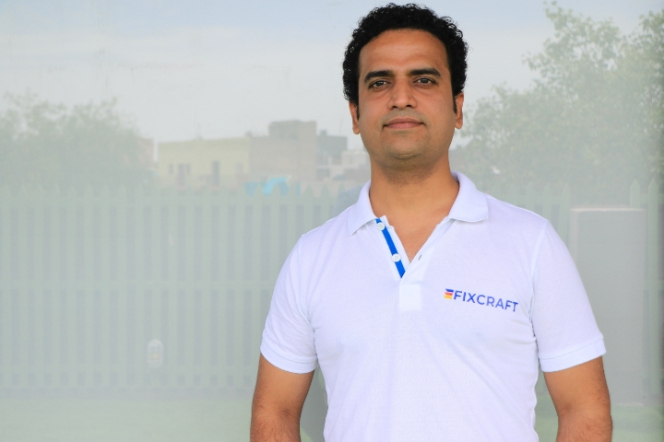
With more and more cars getting into the market, car service is here to stay and has enormous potential. Multi-car servicing businesses will necessitate more advanced technology and updated skills in order to handle the car service needs of today. Vivek Sharma, Founder & CEO, Fixcraft, discusses how technology is the company’s backbone, how it has won its customers’ trust and sources spare parts and more. Read on…
The multi-car servicing business in India is picking up today and could be the future of the country. Car ownership is still evolving in our country, while we are already the third-largest auto market. The per capita car penetration is still very low, so we will still look at buying more cars, and there is huge potential for growth here.
As there will be millions of cars coming on the roads every year, they will require maintenance and care during their lifecycle. Also, a well-serviced car does not pollute the environment as much as one that has not been serviced. Besides, to add to the driving experience, which is evolving, a car serviced well on time only makes the experience more pleasant.
One company that is investing a lot in tech-enabled infra in multi-brand repair and service is Fixcraft. Fixcraft was founded by IIMB alumni Vivek Sharma, Inderjeet Rao and Abhishek Goyal in 2018. A tech-enabled one-stop service for all car repair and servicing needs, all of Fixcraft’s garages are company-owned. With 20,000 happy customers, the company plans to go pan-India in a year and even intends to get into a franchise model, but at the right time – it is in no rush. It already has workshops in Gurugram, Noida and Bengaluru and will open shops in Pune and Hyderabad over the next two to three months.
An end-to-end service delivered through an easy-to-use app today, the first two and a half years of Fixcraft’s operations were only into body repair. It started with mechanical repairs in June-July of 2021. Today, all its facilities operate across all services.
Fixcraft’s inception
Vivek Sharma, Founder & CEO, Fixcraft, has been in multiple roles that have given him an exposure to the automotive industry. What he observed in around 2016-2018 was that there were a lot of changes in the way cars were being purchased and sold in the market. However, the repair sector was functioning in the same way that it has been for decades. Therefore, there was some need for a disruption to happen in this space, which brought the idea of Fixcraft into being.
Sharing his own experience, Sharma tells us, “When I was driving a Maruti Ciaz back in 2017, it met with a small accident. It got a dent on a door, and after I sent it for repair to Maruti, I was charged a high amount for it. While I tried to get it done at a cheaper price, I wasn’t sure about the quality of the work on the car. So I ended up driving a dented car for a few months. If one observes, practically every car on the road has a scratch or some other blemish on it, and of course, no one likes that. That’s when it hit me that there’s probably no solution about the quality of the work done on a car while not burning a hole in one’s pocket. That’s when we realised that something needs to be done about this sector, clubbed with the market potential and my personal experience. This led me to do a lot of research about it.”
Sharma further shares, “When we decided that something needed to be done about this sector, the point was, ‘what should we do?’ Do we do everything related to car repair? Or do we only do accidental or body repair? Another question that arose was that which business model should we do – do we just aggregate the demand existing in the market and divert it to the existing workshops? Or do we do something about it ourselves?”
Sharma goes on to tell us that it was decided that an aggregation or marketplace kind of a model would not be a great place to go to. “That’s because the quality of the service was very important; the delivery of quality is in the hands of a third-party garage in an aggregation model. Thus, we decided that we’ll have 100 percent control on the garages in our phase one, where the work will be done – we’ll own the garage and the people working out of it,” he says and continues, “We decided to focus on better customer delivery and then explore multiple cities. But our phase one was to understand the consumer pain points, which we wanted to solve at our own scale.”
Sharma adds that Fixcraft decided to enter the market with body repair and chose to do car service in its phase two.
Consistent quality
With its presence in multiple cities, we ask Sharma how the company makes sure that the quality of their services is consistent everywhere. Sharma cites, “Quality control is a multi-part process, where the work is happening and then you are standardising things. That way, there’s no problem at a later stage. You then have checks and balances, so that even when you are following the process, you make sure that nothing outside of it is happening.”
“The actual work is happening on the car in phase one, which we have further broken down into two parts – the first is the people and the process that the people follow, and the second is the material that is being used on the car. So we standardise the consumption of the material; we test it out at our Gurugram facility. We have standardised the materials that we will use all across our garages, with a central and country-level tie-up with multiple companies,” he adds.
Throwing more light on the process, Sharma asserts, “Let’s say a door needs to be painted – that involves a 13-step process. So everybody follows that 13-step process, which brings out a certain level of standardisation across the centres – if this 13-step process is followed, with the same kind of material being used, then it results into roughly 90-92 percent standardisation right there.”
“The second level is the gate check, where the quality inspection takes place before the car is delivered, which is same across all our garages, irrespective of the location,” Sharma adds.
In a nutshell, Fixcraft is standardising its entire operating procedures that need to be followed, which is a work in progress for the company. “We’ll do a franchise expansion model when we are completely sure that it’s a foolproof playbook that can be followed by anybody who gets on board. While we have achieved a certain degree of standardisation, a certain degree is still a work in progress,” Sharma tells us.
Individual garages running on their own
With two more garages in line and keeping its quality consistent with its presence in multiple cities, Fixcraft mainly strives as a company by focusing on having the individual garages it operates run on their own in the first three to four months and get into an operating break-even point. “The workshop starts running on its own between one quarter or four months (even if it takes a little more time),” Sharma highlights and goes on, “Typically, one workshop should be able to give us about INR 8 million a month of top-line. But we operationally break-even at about INR 2.5 million.”
Technology – the mainstay
Technology also happens to be the backbone for Fixcraft, like it is for so many other companies in the industry, where it is being used to build more trust and transparency with customers. Also, digital is the key today for any organisation, and shedding more light on this, Sharma explicates that a car service experience with Fixcraft will be very similar to how one orders food on a food delivery app. “You can order what you want for your car on a Fixcraft app,” Sharma explains and continues, “You add it to your cart and order it. Then a person comes to pick up your car, and you can see who that person is, along with their details, like photo, ID card, valid driving licence etc.”
“Moreover, when the car is in the garage, no upsell happens, which we have made sure of as a policy. Therefore, the customer is not in constant fear that the advisor in the garage is going to upsell them three or four more things that the car may not need, thus increasing the expected bill. Also, when the car is in the garage, the customer will see a step-by-step update, along with a photo of the car, as to what’s happening; like the car is being washed, is ready for delivery etc.,” clarifies Sharma.
Fixcraft also has a workshop module that has different cars assigned to the service specialists in the workshop. They update the status, which is visible to the customer. Plus, technology also helps the company get more output. “We have a system which analyses different times that are taken across different categories of works in the car,” Sharma states and goes on, “By analysing this, the system throws out a schedule mentioning which car needs to be sent to which part of the workshop, as every car has a different scope of work.”
Winning the customers’ trust
While technology plays a prominent role in making sure that the customers have transparency about the company’s processes, it’s a given fact that most authorised service stations make replacements for car parts instead of repairing them, which leads to making more money. However, it’s the other way round with Fixcraft. Sharma elaborates, “We make more money when we repair rather than replace. So everybody in the value chain knows that we need to stay away from replacement as much as we can in order to keep the company profitable.”
Another factor that Fixcraft has focused on is to incentivise the advisors to get a five-star review from the customer. “There is an established norm where the advisors in our garage will not really tell the customer what to get done for their cars,” Sharma enlightens and adds, “But they have to give the right advice, so that the customer is happy and gives a five-star review for the work that is delivered. This is something that we have seen working for us right now.”
Fixcraft’s hiring strategy
But how does a company make sure that its employees and technicians are skilled enough to develop that transparency with customers? Of course, that all starts with the hiring itself.
“People who are part of ITIs and vocational institutes are trained in the basic theory and skills,” Sharma asserts and continues, “We hire them and bring in our experts. For example, our paint company expert will come and help them understand the various steps. A training is done every quarter. Then we have on the job training – a supervisor, a technical assistant, or an expert will train them on the go. The technical supervisor is typically part of the oil company. For instance, if we take oil from Castrol, Castrol will appoint one technician here, who will provide training in car servicing, car maintenance, AC repair etc. to do in the standard process.”
Sharma further informs that Fixcraft is also going to start a certification programme for all the technicians who have gone through this training. “We intend to make a full-fledged programme around the training and certifications of technicians and mechanics who are operating in our garages. In truth, they will also be employable outside of Fixcraft to work in other multi-brand workshops,” he elucidates.
Difference in cost
While winning the customers’ trust makes a humongous difference in having them coming back again, in terms of cost and quality both, Fixcraft sees to it that the customer experience they provide is impeccable. But they focus on their prices too. When asked about the cost differences between getting a service at a Fixcraft workshop and an authorised service centre, Sharma tells us that it varies depending on the brand and segment of the car. Giving us an example, he says, “For instance, an entry level Maruti Swift can get one door painted for INR 3,000- 3,200 at Maruti, while the same can be done for INR 2,000 at a Fixcraft workshop. As the segment goes up, a Volkswagen Vento door paint will cost about INR 7,000 at a Volkswagen workshop, while it will cost INR 3,000-3,200 at a Fixcraft workshop.”
Getting the spare parts
Whether a company chooses to replace or repair a part, sourcing spare parts can be a big challenge for any multi-brand service business, from fast moving to slow moving to maintaining inventories. In fact, a lot of companies are investing their money just to manage inventories in different ways.
Explaining Fixcraft’s way around getting their spare parts on time, Sharma puts across that when their workshop business was scaling, until then, their spare parts needs were being met by their local sourcing. “However, we began to realise that while we were able to source the spare parts, our pricing was not really up to the mark – because we would not buy it in bulk,” he mentions and continues, “We decided in December last year that we may want to build a spare part vertical of our own, where we will source directly, and not only consume them ourselves but supply to the market as well. That would mean becoming a large distributor of spare parts pan-India, which is the plan.”
Sharma further conveys that they are working with large distributors across the country right now – West, South and North (East is not so prominent yet). “We also have a solid database where we have started sourcing inventory of parts that are fast moving,” he informs and goes on, “On the body shop part side, the advantage is that the customer expects that the car will take two to three days to come back. So we follow a ‘Just in Time’ philosophy on body repairs.”
Effect of the Covid pandemic
While the Covid pandemic affected Fixcraft’s overall business, it also did good for it where personal space became very important. People were not comfortable with taking an Uber or Ola during the pandemic, because of which they started using their personal cars more. “This in turn resulted in them caring for their personal cars more, and that acted as a booster for our business,” Sharma cites and continues, “When the markets opened up, we saw a sudden surge in our business – service as well as repair. And that has continued; whenever there has been a lockdown, we have seen a dip. But that’s typically momentary – the moment the lockdowns open up, the upsurge in the demand covers up for the dip in the previous months.”
Being top-notch
Fixcraft intends to capitalise on economies of scale. From providing excellent services to complete customer satisfaction, the entire ecosystem of multi-car services and repairs is evolving, and will do so with the years to come, with technology becoming more advanced and customer requirements changing rapidly. When it comes to car services, while making profits is important, what’s pivotal is to ensure that the customer experience is paramount and that the car is delivered as quickly as possible with efficient work done on it.
- Toyota Kirloskar Sundaram Automotive Solutions
- TSERV Select
- Kirloskar Systems
- Trichur Sundaram Santhanam Family
- TSSF Group
- Toyota Kirloskar Motor
- Rajesh Menon
- Geetanjali Kirloskar
- Srivats Ram
- Tadashi Asazuma
Toyota Kirloskar Sundaram Automotive Solutions Launches TSERV Select Multi-Brand Outlet In Bengaluru
- By MT Bureau
- February 02, 2026
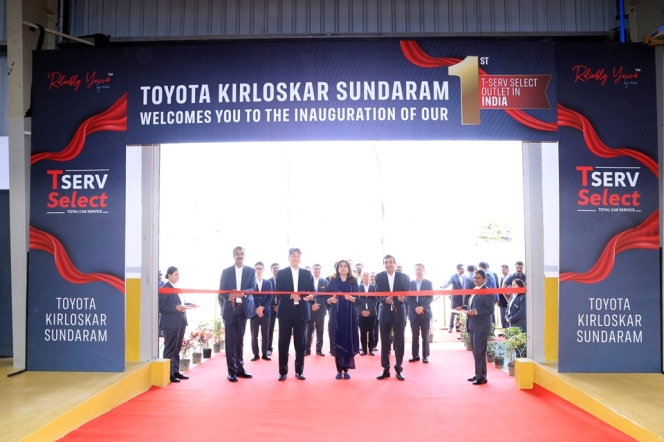
Toyota Kirloskar Sundaram Automotive Solutions has inaugurated its first ‘TSERV Select’ multi-brand service outlet in KR Puram, Bengaluru. The company is a joint venture between Kirloskar Systems, the Trichur Sundaram Santhanam Family (TSSF Group) and Toyota Kirloskar Motor (TKM).
The JV targets the growing demand for organised and transparent vehicle maintenance in India's automotive market. The outlet features diagnostic tools and a workforce trained to provide services for vehicles of all brands.
The company has appointed Rajesh Menon as its President, who comes with over 35 years of experience in the automobile sector. He will oversee the development of a service network intended for various Indian cities.
In addition to the company-owned TSERV Select format, the business operates a network of 150 third-party multi-brand outlets under the ‘TSERV’ trademark. This dual-network approach is designed to increase accessibility while maintaining service standards across different markets.
Geetanjali Kirloskar, Chairperson and Managing Director, Kirloskar Systems, said, “The inauguration of our first service outlet marks an important milestone in building a customer-friendly automotive service platform. As Indian customers increasingly value transparency and trust, our focus is on delivering high-quality and dependable service across vehicle brands.”
Srivats Ram, Director, TSSF Group, said, “The launch of this facility reflects our commitment to making professional vehicle service more accessible and affordable. By addressing the gap between customer expectations and the availability of organized service options, we aim to offer reliable solutions that deliver value across the ownership journey.”
Tadashi Asazuma, Deputy Managing Director, Toyota Kirloskar Motor, said, “The launch of the first TSERV Select outlet marks a significant milestone, reflecting our shared commitment to extending Toyota’s service philosophy through strong and capable local partnerships. As a mobility solutions company, our focus goes beyond vehicles to deliver dependable, end-to-end ownership and service experiences that bring mass happiness to customers. Through disciplined processes, skilled teams, and an unwavering focus on quality, we aim to offer customers a consistent, reliable, and high-standard service experience that builds long-term trust and supports their evolving mobility needs.”
Avis India Introduces Luxury Van Rental Service
- By MT Bureau
- January 28, 2026
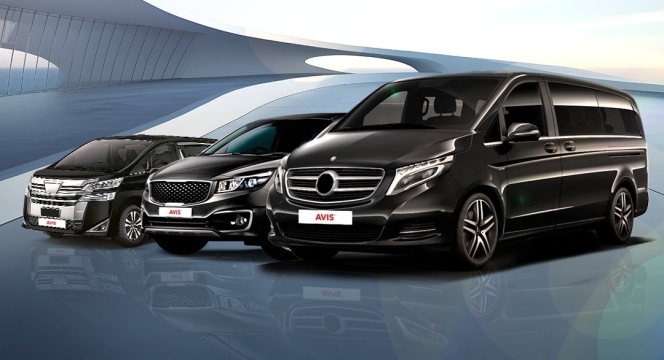
Avis India has announced the launch of Avis Luxury Van Rentals, expanding its mobility portfolio to address demand for group travel. The service is aimed at corporate and leisure segments, providing transport for business leaders, families, and teams.
The fleet consists of vehicles including the Mercedes-Benz V-Class, Toyota Vellfire, Kia Carnival, Toyota Coaster and Toyota Commuter. These models allow customers to select vehicles based on group size, with the capacity to accommodate up to 25 passengers. The service is available for intracity and intercity travel and is operated by English-speaking chauffeurs.
Bookings, confirmations and modifications are managed through an in-house technology platform. This system is supported by a 24x7 contact centre intended to provide assistance to users. The launch extends the company's existing suite of mobility solutions, focusing on service standards and management for group movements.
Aman Naagar, Managing Director, Avis India, said, “Avis Luxury Van Rentals reflects our focus on delivering elevated mobility experiences for customers who value comfort, reliability and professional service. The launch is designed to meet the requirements of evolving group travel in the country, and further strengthens our portfolio. The service is designed to accommodate up to 25 passengers and reinforces our commitment to delivering seamless premium mobility solutions, nationally.”
Carraro India Opens First Authorised Service Centre In Faridabad
- By MT Bureau
- January 23, 2026
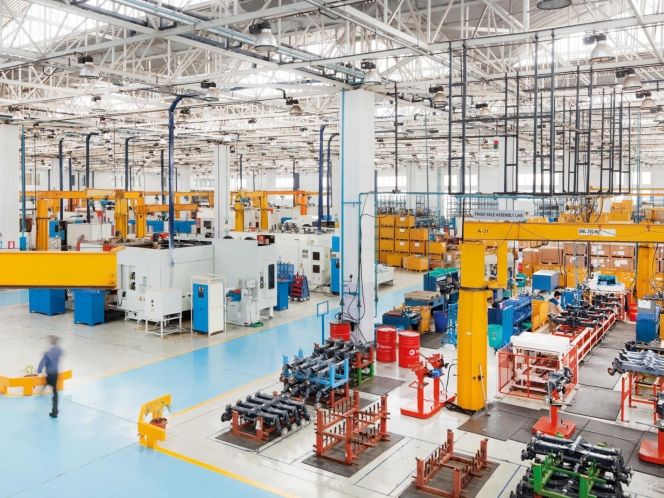
Carraro India, a subsidiary of the Italian group Carraro, has inaugurated its first authorised service centre in Faridabad, Haryana. This facility is the first of four centres the company plans to establish across India by 2026 to support its expansion in the off-highway vehicle market.
The centre is operated in partnership with Balaji Enterprises and will provide maintenance for driveline systems, including axles and transmissions used in agricultural and construction machinery.
The facility is equipped with diagnostic tools and a stock of genuine spare parts to ensure the repair of equipment. It aims to serve customers in Northern India, reducing downtime for fleet operators and farmers. Carraro India currently operates manufacturing plants in Pune and produces driveline solutions for several original equipment manufacturers (OEMs).
The inauguration in Faridabad marks the start of a network growth strategy. Carraro intends to open three additional centres in locations with high concentrations of off-highway equipment. This initiative is designed to move after-sales support closer to the end-user, providing technical assistance and training for local mechanics.
Andrea Conchetto, CEO, Carraro Group, stated, “The opening of our first authorised service centre in Faridabad is a milestone in our journey to enhance customer experience in India. This facility is a testament to our commitment to providing world-class service and support to our customers. We are confident that this centre will set new benchmarks in service excellence”.
S Krishnan, Managing Director, Carraro India, said, “The Faridabad centre is the first of many such facilities we plan to open across the country. Our goal is to ensure that our customers have access to genuine parts and expert service, regardless of their location. This expansion will help us strengthen our presence in the Indian market and provide better value to our customers”.
“We are proud to partner with Carraro India in this initiative. Our team is trained to provide the best-in-class service to Carraro customers. We look forward to a successful partnership and to serving the needs of the off-highway vehicle industry in this region,” added Balaji Enterprises representative.
 - Ravi Kumar
- Ravi KumarMain is opportunity ko lekar bahut interested hoon aur requirement ke hisaab se join karne ke liye ready hoon
Reply
Knorr-Bremse And WESP-Group Launch JV For Commercial Vehicle Data Services
- By MT Bureau
- January 13, 2026
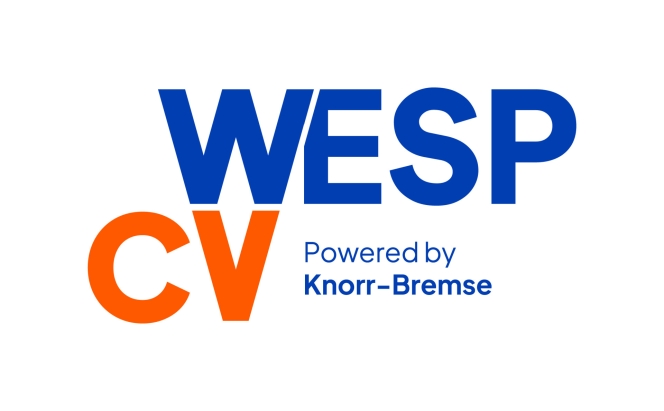
Knorr-Bremse Systeme für Nutzfahrzeuge and Dutch company WAGH (WESP-Group) have established a joint venture, WESP CV, to develop digital services for the commercial vehicle industry.
The new entity headquartered in Germany will see Knorr-Bremse hold 51 percent stake, while WAGH will hold the remaining 49 percent.
WESP CV will focus on data-driven benchmarking for workshops. By comparing performance indicators, the venture aims to help companies identify operational efficiencies and use data to inform business decisions. The database created through this partnership is intended to provide transparency regarding market potential and product field data for workshops, distributors and industry partners.
The partnership seeks to address industry challenges, such as the shortage of skilled staff, by ensuring workshop employees can operate with higher efficiency through predictive maintenance solutions and integrated data ecosystems.
Alexander Wagner, Vice-President Global Aftermarket/TruckServices, Knorr-Bremse Commercial Vehicles, said, "The founding of WESP CV marks the next milestone toward a holistic and efficient commercial vehicle aftermarket ecosystem. The joint venture combines WESP's expertise in digital services for workshops with Knorr-Bremse's expertise in the commercial vehicle market. We want to support commercial vehicle workshops with data-based consulting services, helping them to identify operational efficiency potential, enable data-based decisions, and exploit previously untapped business opportunities or potential for improvement. This extensive database will not only support commercial vehicle workshops, but also other market participants and industry partners in gaining deeper transparency about market potential and product field data.”
Bas Wintjes, Managing Director, WAGH, said, “In the past months, we have consistently aligned our tools with the key KPIs of the truck, trailer and bus market. One thing has become clear: the fundamental principles remain the same – benchmarking against others enables workshops to achieve targeted improvements. In today’s environment, where it is becoming increasingly difficult to find skilled staff, it is more important than ever to ensure that workshop employees can work efficiently. Data-driven predictive maintenance solutions will play a central role in the future. Particularly valuable is the collaboration between manufacturers, distributors, and workshops: a strong data ecosystem gives all stakeholders the opportunity to measurably enhance their performance. The partnership with Knorr-Bremse is an important step in the further internationalization of WESP-Group. We look forward to combining Knorr-Bremse’s market expertise with our proven, practice-oriented tools.”







Comments (0)
ADD COMMENT